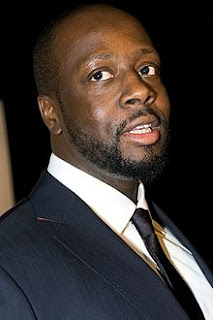Cross-Posted From The NonProfit Times
***
Microsoft Corporation employees have given $1 billion to nonprofits
since the inception of the company’s Employee Giving Campaign in 1983.
The software company, co-founded in 1975 by Bill Gates, made the
announcement at a town hall event yesterday. Gates is also the head of
the Bill and Melinda Gates Foundation.
Microsoft CEO Steve
Balmer announced the news along with Gates and Washington Gov. Chris
Gregoire on the corporation’s campus in Redmond, Wash. The event was
held to commemorate the 30th anniversary of the Employee Giving
Campaign, which has benefited 31,000 organizations nationwide.
To
mark the occasion, Microsoft announced that the four nonprofits that
received the most money from the program would get a $25,000 grant.
Those organizations were World Vision International, Seattle Children’s
Hospital Foundation, the American National Red Cross, and United Way of
King County.
“I'm incredibly proud of our employees, and this is
truly a time to celebrate, not just because we've raised a record
amount of funds, but also because together with our nonprofit partners,
we have impacted and improved the lives of hundreds of millions of
people,” said Balmer.
When the Employee Giving Campaign was
first implemented by Microsoft in 1983, 200 employees raised $17,000 for
nonprofits. The company now has 35,000 employees, and it predicts that
over $100 million will be raised for organizations this year.
“The
impact of all that giving is almost incalculable, and the statistics
don't even begin to tell the whole story,” said Jon Fine, CEO, United
Way of King County.
Gates proudly recapped the employees’
history of giving, saying they have been involved in their communities
from the company’s earliest days.
“Thirty years and $1 billion
later, that impact can be felt around the world,” Gates said. “The
company and its employees have much to be proud of at this remarkable
milestone and, I know, will continue to make a positive impact in the
years ahead.”
Gates is no stranger to philanthropy as his
foundation has worked to support programs that aim to enhance healthcare
and end global poverty. He also partnered with Warren Buffet in the
Giving Pledge, which urges billionaires to agree to donate half of their
wealth to charity. Gates was once again selected to
The NonProfit Times’
Power and Influence Top 50, which honors the top nonprofit executives in the country.
The
Employee Giving Campaign is a year-long effort, with the company
matching employee volunteer time at $17 per hour and dollar-for-dollar
charitable contributions to all eligible nonprofits up to $12,000 per
employee. In addition to the $1 billion raised, employees have also
volunteered more than 2 million hours of their time to causes since
Microsoft began its volunteer match program in 2005.
The company
places a special focus on the month of October both on its Redmond
campus and in its offices across the U.S. Employees work together not
only to volunteer their time and raise money through direct donations,
but they also organize a month-long series of activities. These include a
5K run, an online auction, and an “underground” car show.



